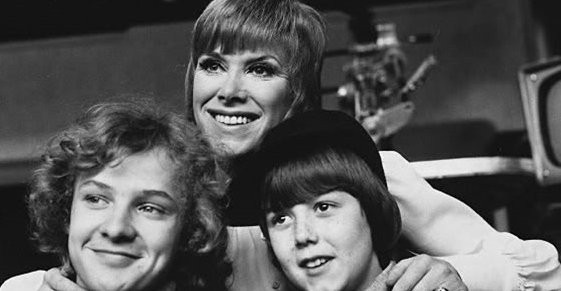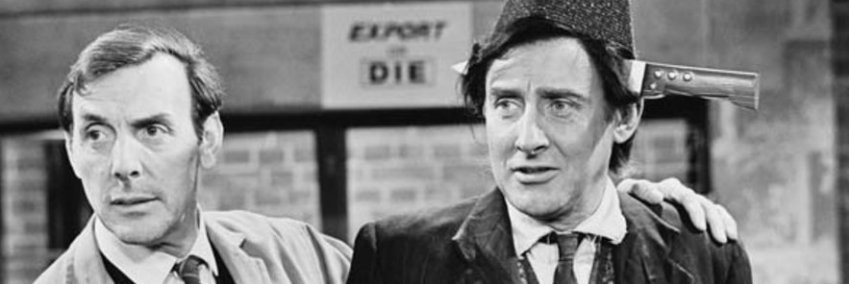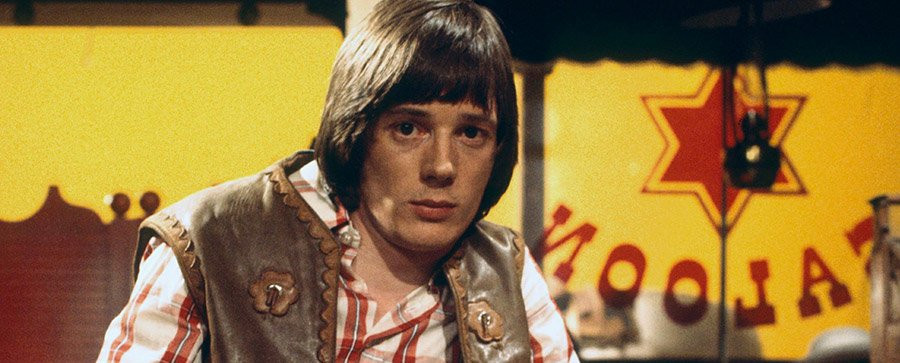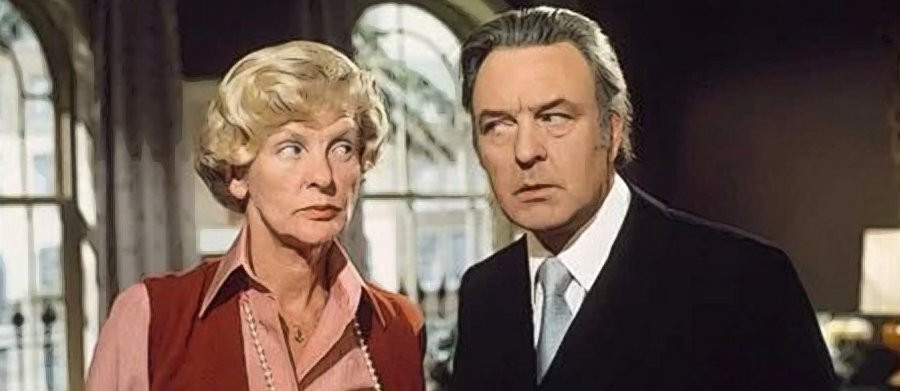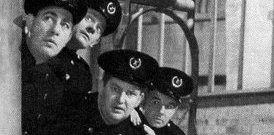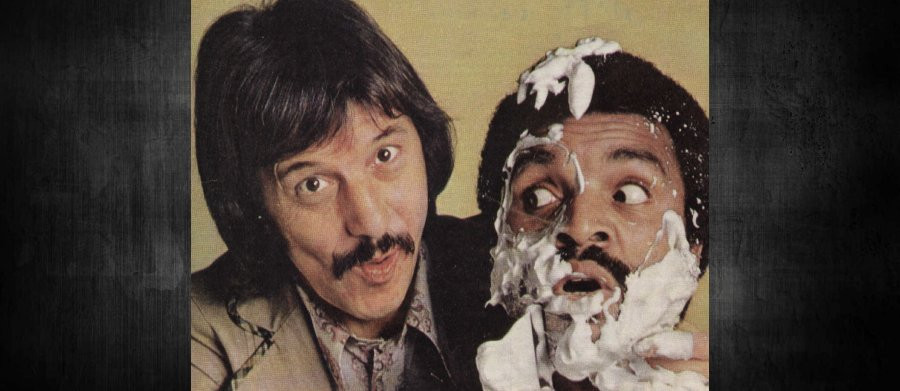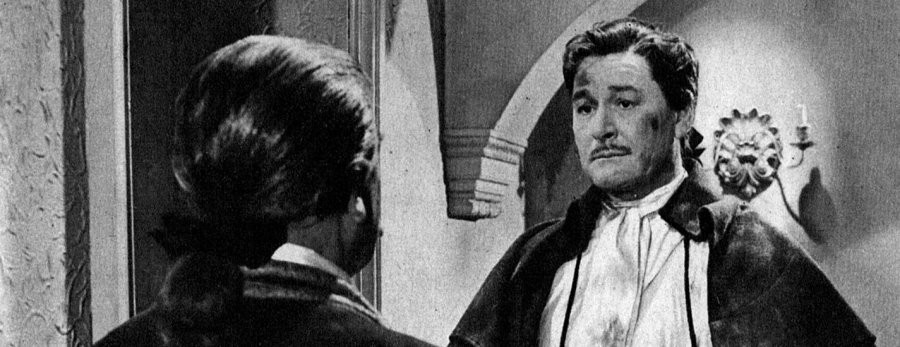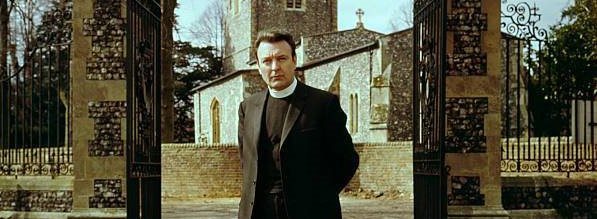
Our Man at St. Marks
1960 - United KingdomLight hearted comedy series originally starring 1960's 'super smoothie' and womanising cad, Leslie Phillips, in an unfamiliar role as the somewhat eccentric, but holy, Reverand Andrew Parker. The show was similar to a US series that had premiered a year before called Going My Way, which starred Gene Kelly (in his first and only weekly TV series) and was itself based on a 1944 Bing Crosby movie. The British version was originally intended to be called There Was a Young Vicar, but it was decided this sounded too much like the beginning of a limerick.
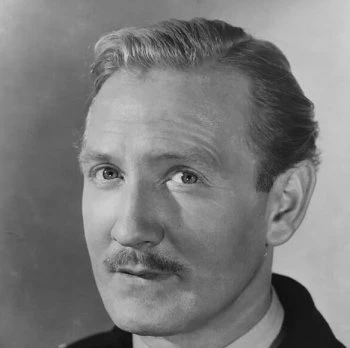
St Mark's was situated in a rural parish at the centre of the village of Felgate (in reality Denham Village, Buckinghamshire), and focused on Andrew Parker's day-to-day exploits as he wove his way in and out of the lives of his parishioners. Unusually for this period, Parker had a girlfriend, Anne Gibson (Anne Lawson), and a housekeeper; Mrs Peace (Joan Hickson) also assisted him. However, after the first series (which made its way to number three in the ratings), Parker moved on to pastures new and another vicar, Stephen Young (Donald Sinden -pictured below), moved in although Mrs Peace remained.
Sinden explained how his role saved him from a fight on one occasion. "For the series I always leave home in the dog collar. I see no fun in getting dressed twice in one day. Anyway, I was in a traffic jam on the way to Wembley studios and I'm a bit late, so I'm afraid I was a bit naughty. I tried to squeeze my way in, on the outside. In doing so, my bumper got entangled with another fellow's mudguard. He got out and came up to me as if he was about to knock my block off - but when he saw my dog collar, he just put his hands up in prayer and begged my pardon!"
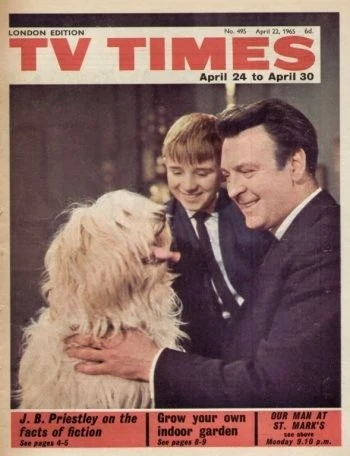
For the third series the tone was set a bit darker when more serious social issues were addressed. "We found viewers were far more interested in a story involving strong issues than a light-hearted one," said producer Eric Maschwitz. "In this new (3rd) series we have concentrated on more serious themes." Because of this change the scheduling was moved from its previous cosy slot of 7.30pm to 9.10 pm. "This is because some of the episodes will not be suitable for young viewers."
Despite the change there was light relief from a new character, as the vicar's sexton and gravedigger, in the form of reformed crook Harry the Yo-Yo (Harry Fowler), who was so called because he was always bouncing in and out of prison.
For the fourth series yet another change took place. Stephen Young moved from Felgate to Lynchester where he was promoted to Archdeacon. "He's a sort of general dogsbody, a personal assistant to the Bishop", Sinden explained to the TV Times in July 1966. "I get sent round the diocese, sorting out the troubles of vicars. You'd be surprised what troubles the vicars can have. One of them has apparently taken to drink, another has been selling knitwear from a van to make cash on the side...!" For the final series the title was subtly changed to Our Man From St Mark's.
Of the 47 episodes produced (including an un-aired pilot), only 8 complete episodes are known to have survived.
Seen this show? How do you rate it?
Seen this show? How do you rate it?
Published on January 17th, 2019. Written by Laurence Marcus for Television Heaven.



